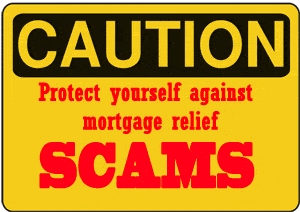
Real estate transactions in today’s world often involve the wiring or electronic funds transfer (EFT) of money to complete a deal. Previous consumer alerts have referenced or covered wire fraud in timeshare transactions and fraud against seniors.
Wire transfers and EFT’s in real estate purchase transactions have become the targets of criminals who interject themselves into a real estate transaction by posing as a party in the transaction. In these cases, the criminal often takes on the identity of a title or escrow company or real estate agent in the transaction and provides legitimate-looking instructions directing the buyer where to wire or transfer funds. These instructions result in the wiring or transfer of funds to the criminal’s bank account, often overseas, and the immediate loss of thousands, or hundreds of thousands, of dollars to the victim.
These are sophisticated, professional-looking attacks on your real estate
transactions, and you need to be on the lookout. Cyber criminals may convincingly
take on the identity of legitimate parties to your transaction, using authentic-looking
logos and personal details in communications, in order to make
you or your clients feel comfortable. It is best to be safe in how you respond, and to
assume that your transaction is being targeted.
What can you and your clients do to avoid such
criminal activity?
1. Whenever possible, use alternatives to wire transfers or EFT’s, such as cashier’s checks, and get a receipt. For smaller transactions, make the payment in person by check or credit card and get a receipt, as these payment sources provide you with proof of payment.
2. Obtain phone numbers and account numbers of real estate agents and escrow-holders at the beginning of the real estate transaction, and use those numbers throughout the transaction.
3. Even if it looks or sounds legitimate, do not act on a change of wiring or EFT instructions that you receive electronically (via e-mail) or via phone call. If your real estate transaction will utilize wiring or EFT of funds, and you (or your client) receive an instruction change about wiring or EFT of funds, call the real estate agent or escrow officer by phone at the known number you obtained at the start of the transaction and verify new instructions before sending money. Better yet, if there is a wiring or EFT instruction change, instead make payment in person using cashier’s check!
4. Do not send personal information (bank account numbers, credit card numbers, social security numbers, and financial details) by personal e-mail or text. Take steps to use a secure, encrypted site to send personal information, or provide this information in person.
If you (or your clients) are victimized, it is critical that you or your client contact your depository institution and the Federal Bureau of Investigations (FBI) immediately in order to have a chance at halting the criminal transfer. File a report with the FBI by calling a local FBI office or reporting online at FBI Internet Crime Complaint Center. Their web site is: bec.ic3.gov
Please help keep this website going
Contact Us Today for all your real estate needs
Thank you
John J. ODell Real Estate Broker
RE 00996641










